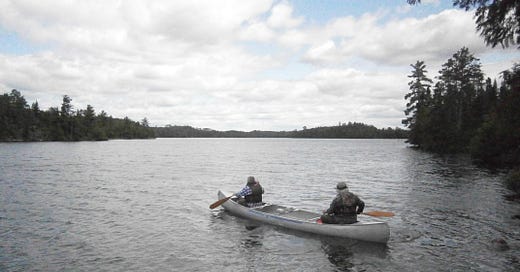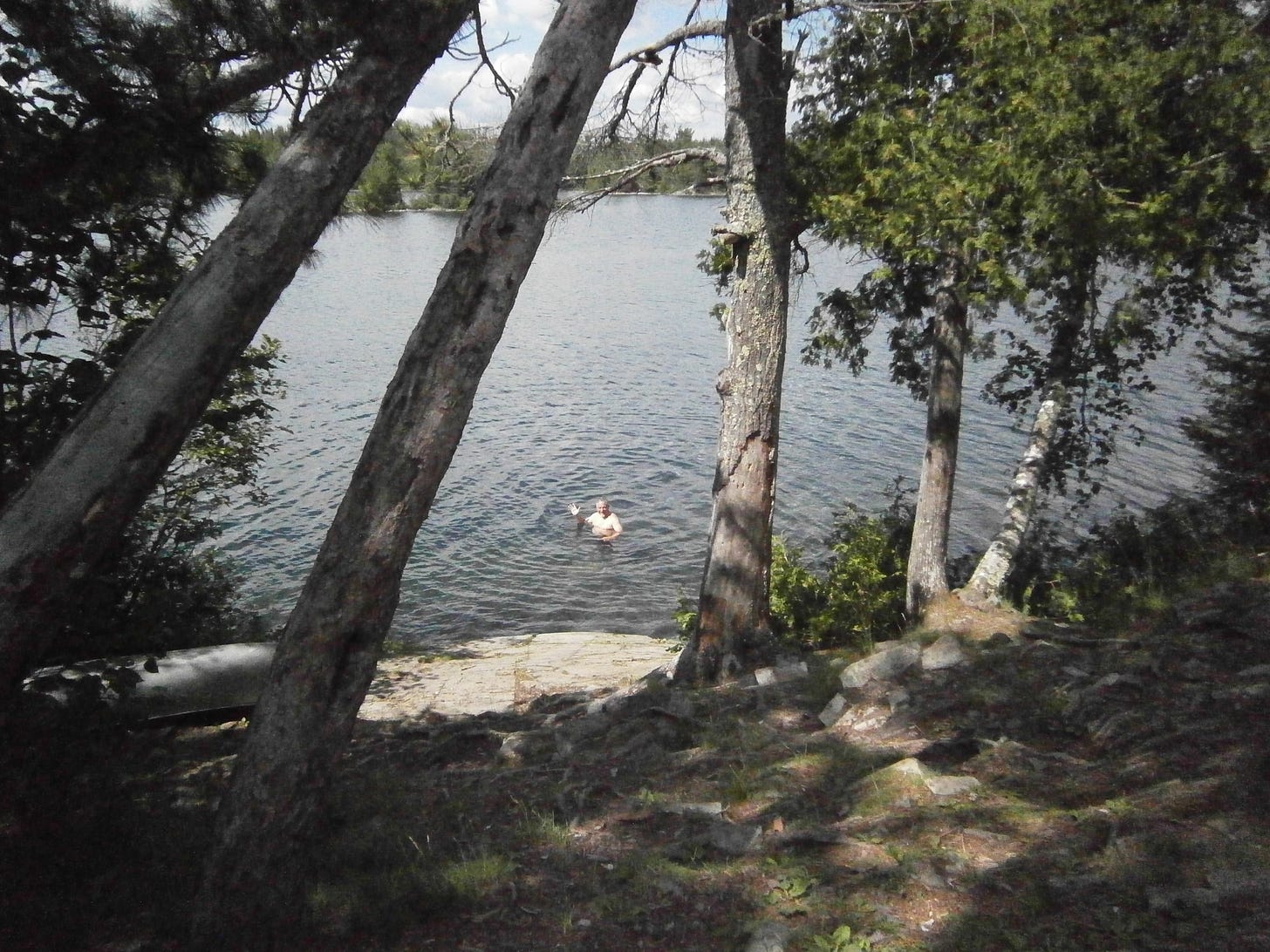I'm back from the Boundary Waters and getting ready to orient my days around my fall teaching, research, and other activities. I'm going to try to reduce my reliance on technology. Not wearing the Apple watch anymore. Ordered an inexpensive analog-mechanical wristwatch which I'll wear some of the time and my pocket watch other times. I wonder whether I could stop carrying my iPhone all the time. Leave it in my office at work?
That's not to say I'm not going to continue trying to be somewhat organized and keep track of what I'm working on, how far I walk, when I exercise, and what and when I eat. I'm just going to begin doing that in writing in a planner or on my computer (like this writing I'm doing in Obsidian), rather than via a bunch of apps. The upside is this will save me the annual subscription fees to these apps. At the end of the year, I may even consider dropping my Crossfit membership and doing my workouts in my own home gym. I'm getting value from the "obligation" I feel to go three times a week, based on the high cost of membership. I'm still learning new movements and techniques. So that's money well-spent, I think. But I don't LOVE it enough to keep going once I know what I'm doing, I suspect. This year is a reintroduction for me, to fitness training. Hopefully I'll be able to continue it on my own and get even more out of it, going forward.
During the Boundary Waters trip, we canoed and portaged all morning, found a campsite at the new lake, and then relaxed in hammocks, fished, and swam in the lakes in the afternoons and evenings. The fishermen were pretty successful and we had a couple of good meals of pan-fried Northern and Largemouth Bass. Although the area along the US-Canadian border was pretty extensively logged about a century ago, there were some decent-sized white and red pines and my interest in writing an international history of the pine lumber industry was renewed. I think the scope of this project has increased to the point where the story will probably begin in the Colonial Era on the East Coast and conclude in the 20th century in western Minnesota (the end of the forest and edge of the prairie). That's a very wide geographic and temporal range, so I'll need to come up with some other ways of limiting the focus to make the story interesting and digestible.
I'm sitting in a coffee-shop writing this, waiting for a colleague from the English Department who wants to collaborate on creating a zero-textbook-cost path through the English major. That will be another project I'll be working on this year and I'm looking forward to getting on with that in the fall. The university I work at is facing a budget deficit and "retrenchment". Under our union-negotiated contract, reductions in tenured faculty require the actual elimination of positions and our financial situation is bad enough that it may possibly require a reduction of programs. So even if I get tenure, I won't necessarily have job security. But rather than worrying about that, I'm going to try to focus on pursuing what interests me and trying to make it interesting to others. A fairly big part of that will involve producing history that is available to the general public as well as to my students. I don't intend to try to earn a living on YouTube or Substack unless I absolutely must. But I'm less convinced than I once was, that there's a clear path available to me to continue working in Higher Ed until I'm ready to retire in a decade or so.






I would very much read a history of the lumber trade. I’m considering embarking on a history of the Dublin Quays